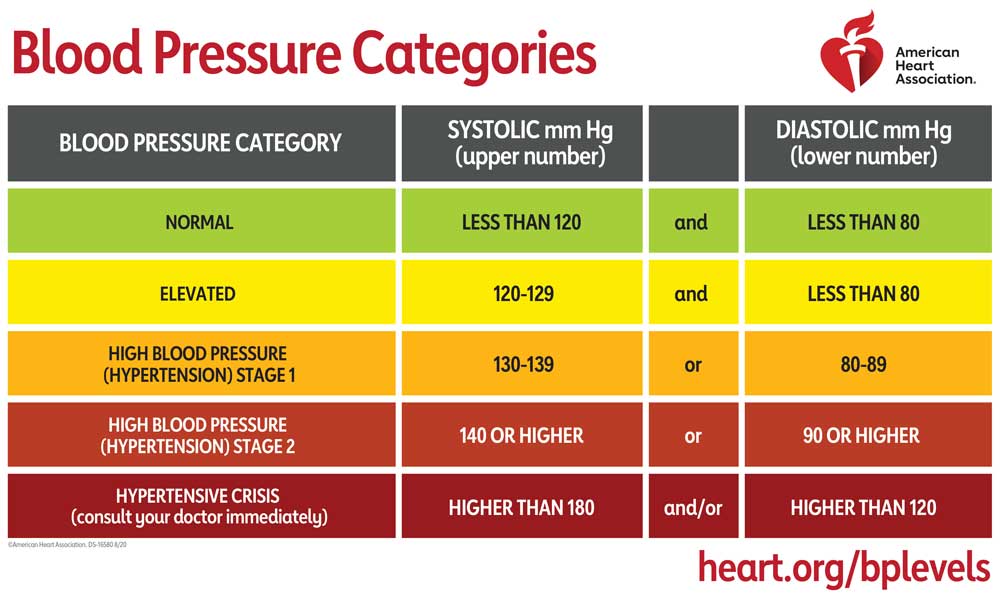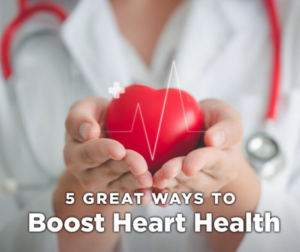Your Heart – powerful, complex, essential
The most powerful, complex and critically important organ in your body is beating right now in your chest. During your lifetime, your heart will beat well over 2.5 billion (that’s a “b” for billion) times.
Since you can’t see it (or see inside of your heart), it’s easy to take it for granted.
But your heart needs your help – and attention!
Did you know that, on average, one in two adult Americans have high blood pressure? That includes young people.
Since the symptoms are often silent, it’s easy to brush this off. Some people excuse the condition and say: “I’ve had high blood pressure all my life and I’m fine.” Or “High blood pressure runs in my family.”
What can happen?
Here’s the truth: over time, untreated high blood pressure can cause all sorts of serious problems (see below). Worse case? It can lead to premature death.
Here’s the good news: you can get engaged and take charge of your heart’s health!
High blood pressure can be safely lowered.
Southern Indiana Community Health Care offers you and your family the Follow My Heart program for those who are diagnosed with high blood pressure. Your Community Health provider will provide you with a plan to get things under control, possibly including medication, diet considerations, and other positive steps that engage you personally.
But there’s more.
Under the Follow My Heart program, your Community Health Care provider will give you a free home blood pressure monitoring system and show you how to use it. You simply take your own blood pressure at home or work. The remote system will securely store the data and send it by a secure link to your provider at Southern Indiana Community Health Care.
You can then personally watch your blood pressure come down to a safe range over time (see below). If there’s a challenge or a need to adjust things, you can work with your provider together to help keep your heart healthy and lower the risk of cardiovascular disease. Your provider will walk with you on the path to a healthy heart for a three month period.
What are the risks of you developing high blood pressure (HBP)?
There are risk factors that increase your chances of developing HBP. Some you can control, and some you can’t.
Those that can be controlled are:
• Cigarette smoking and exposure to secondhand smoke
• Diabetes (work together with your provider for an optimal pathway)
• Being obese or overweight
• High cholesterol (which can clog up your arteries)
• Unhealthy diet (high in sodium, low in potassium, and compounded by drinking too much alcohol – more than two drinks per day)
• Physical inactivity (e.g. sitting on the couch instead of taking a 30 minute walk)
Factors that can’t be modified or are difficult to control are:
• Family history of high blood pressure
• Race/ethnicity
• Getting older
• Gender (males)
• Chronic kidney disease
• Obstructive sleep apnea
Socioeconomic status and psychosocial stress are also risk factors for HBP. These can affect access to basic living needs, medication, health care professionals, and the ability to adopt lifestyle changes. Southern Indiana Community Health Care can help create access to quality healthcare for those who can’t pay, don’t have insurance or need transportation (visit SICHC PAYMENT OPTIONS for more information).
What is Hypertension (high/low blood pressure?
Blood pressure is the force of blood pushing against blood vessel walls.
High blood pressure (HBP) means the pressure in your arteries is higher than it needs to be or should be.
Blood pressure is written as two numbers, such as 112/78 mm Hg. The top, or larger, number (called systolic pressure) is the pressure when the heart beats. The bottom, or smaller, number (called diastolic pressure) is the pressure when the heart rests between beats.
Normal blood pressure is below 120/80 mm Hg.
If you’re an adult and your systolic pressure is 120 to 129, and your diastolic pressure is less than 80, you have elevated blood pressure. High blood pressure is a systolic pressure of 130 or higher, or a diastolic pressure of 80 or higher, that stays high over time.
High blood pressure usually has no signs or symptoms. That’s why it is so dangerous. But it can be positively managed.
Why is monitoring Hypertension important?
Nearly half of the American population over age 20, has HBP, and many don’t even know it. Not treating high blood pressure is dangerous. High blood pressure increases the risk of heart attack and stroke.



